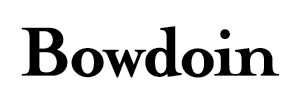
I’m just finishing Nobel laureate Doris Lessing’s The Golden Notebook. For years now I‘ve been aware that I missed reading this book in it’s feminist heyday and so finally came to it as a way of revisiting a period I lived through as a student some fifty years ago; it does feel like a historical novel of the post-war fifties but has the added advantage of a wonderfully playful narrative structure. Anna, the major character is a writer, so we become privy to the characters and stories she creates in her notebooks and learn how she transforms her experience into literature. She and her friend Molly struggle to live independently as “free women” without the institution of marriage but suffer from the double standards and hypocrisy of the British middle class gender expectations, which in part they have internalized. Rife with various critiques of British society and politics, the novel engages the intellectual debates of the time (Marx and Freud are the counterpoints) and deals with the troubles of the British communist party. Lessing’s representation of intellectual crisis and fragmentation in the post-war period makes for a long, enthralling, complex read.

